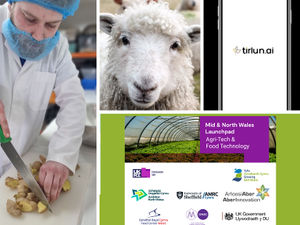Small farms growing as interest in buying locally-produced veg jumps
Fruit and veg is back in vogue, thanks to families getting back to basics during lockdown.
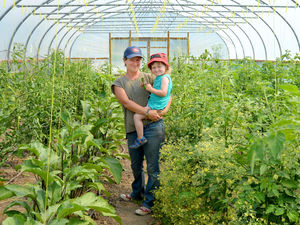
Demand for fresh salad has rocketed during the pandemic, along with the challenge of growing your own. That is good news for smaller farms who have found themselves working hard to keep up deliveries.
Little Woodbatch Farm in Bishop’s Castle is among those that were able to step in early on in the pandemic when some fruit and veg shelves in supermarkets fell empty and fresh food markets closed.
Owner Daphne du Cros saw a doubling in orders for veg boxes and said the lockdown has forced people not to take their food for granted, giving them a new-found interest in fresh produce.
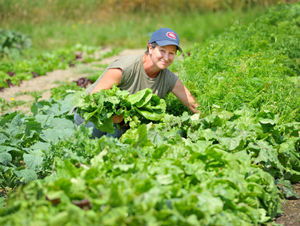
Daphne works on a patch of land that is less than an acre in size and says she concentrates on serving the local community.
“We have already surpassed what we did in an entire season last year," she said.
"This year we started with 30 orders and now we are at 40, and have already done over 300 boxes and it’s only June. We have had so many people contact us that it is difficult to keep up.”
More Covid-19 coverage:
Farmers have continued to work through lockdown and Little Woodbatch Farm also helps the town’s foodbank.
Little Woodbatch Farm has seen the increase in demand since the start of the pandemic, with people wanting locally-produced, fresh fruit and veg, as markets closed and supermarkets ran out of stock.
Daphne, who recently graduated with a PhD in food policy, said the farm is run on a sustainable ethos – providing food to a small, local area, farming without chemicals, using soil-building techniques and using plants to manage weeds and pests.
She and her husband, Dave, moved to Little Woodbatch Farm in 2017.
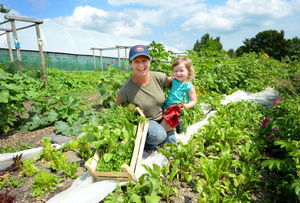
Daphne said the pandemic has prompted a surge of interest and demand in local food, and they expect there will be a great desire from local people to be more self-sufficient and sustainable going forward.
“We work on 0.9 of an acre, which is a tiny farm when you think of food production,” she explained. “We have a variety of veg that we provide to local shops and restaurants, and Harvest Whole Foods.
“We wanted to do veg boxes because it gives us a connection with the local community. We shy away from making commitments further afield because we want it to be as local as possible.
“To explain how much the pandemic has changed things – we started doing veg boxes last year and because we were only starting out, we began with 12 orders. By the end, we had 18 and did a total of about 300 boxes across the course of the season last year.
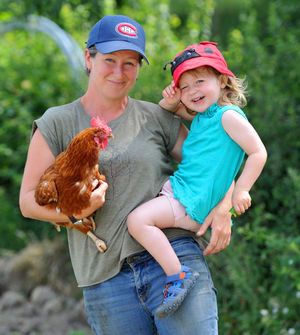
“This year we started with 30 orders and now we are at 40, and have already done over 300 boxes and it’s only June. So we have already surpassed what we did in an entire season last year.
“So many people were contacting us about getting veg boxes – we could not keep up.”
The farm also supplies any surplus veg to the Bishop’s Castle foodbank every Thursday. Daphne said it was great that the town’s foodbank accepts fresh veg, as many don’t.
“It is a wonderful way for us to contribute and it is ultimately what small, local farms should be in a position to do,” she said.
“The pandemic has seen a lot of local producers do just that. We want to provide as much as we can, through all the avenues.”
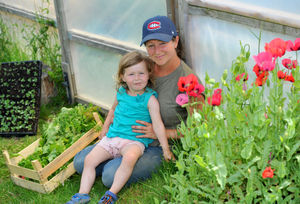
Daphne is also involved in the Marches Grow Local initiative, a steering group that is trying to find out what the local appetite is for food systems.
She said: “It’s about helping people to grow their own food and putting support structures in place if people do want to change things.
“It is about getting people to consume more of their locally-grown food and it is based on community demand and community interest.”
The group has recently launched a survey, the feedback from which will allow it to build a picture of the needs and wants of the Marches area.
To take part visit middlemarchescommunitylandtrust.org.uk/the-hub/marches-grow-local





